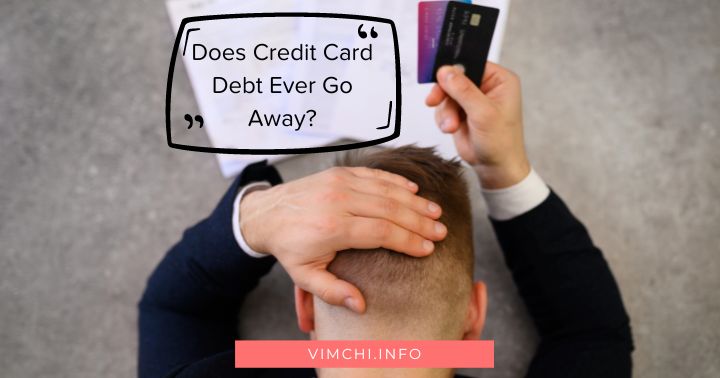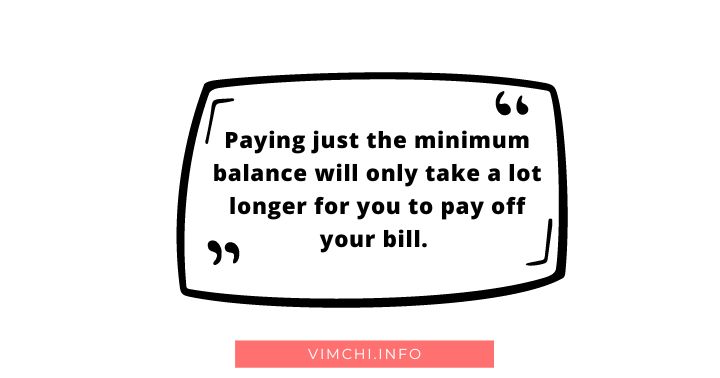
No one, I mean no one, wants to fall into debt. Unfortunately, circumstances can easily make you max your credit card. If you are in this situation now, you might ask yourself, “Does credit card debt ever go away?”
There are many reasons you get into credit card debt. One of them is that you don’t have a budget. But I’m not here to talk about these reasons.
Rather, I’m here to give you some insights about your debt coming off your credit report.
Does Credit Card Debt Ever Go Away? How Long Will It Stay on Your Credit Profile?
Yes, your credit card debt will go away if you do something about it. If you don’t, it will not just vanish without payment.
Even if you file for a credit card consolidation or credit card debt help, you still need to pay for the amount you owed.
It is important to note that credit card companies rarely forgive your entire debt. However, they might give you a way to settle your debt for less.
They may write off your debt. But it does not erase your debt.
If you stop paying your credit card debt, the company will write off your debt. You will be considered uncollectible.
You may think that it is a good thing. However, it won’t give you benefit. Keep in mind that your credit card company will register your debt as a loss.
In other words, your debt will still exist.
Your creditor will just sell the debt to a collection agency, which will collect your debt.
Unfortunately, your debt collector can file a lawsuit just to collect your debt. When the collector gets the judgment, it can use it to garnish your money out of your paycheck.
The collector can also ask the judges to seize your property just to satisfy your debt.
That’s why, instead of running away from your debt, you must face it. There are various ways to pay off your credit card debt, no matter how huge it is.
How to Pay Off Your Credit Card Debt So It’ll Go Away?
Pay Off One Debt at a Time
If you carry a balance on more than one credit card, you can pay the minimum on each card. Start focusing on paying down the balance on one card at a time.
You must focus on high-interest debt. You may check the interest rate section of your statements to find out which of your credit cards charge the highest interest rate.
Choose that one and focus on paying it off first.
Another way is to try the snowball method. That is, you pay off the card with the smallest balance first. When you repay the balance in full, take the money you pay for that debt and utilize it to pay down the next smallest balance.
Pay More than the Minimum Amount

Paying the minimum balance will only take a lot longer for you to pay off your bill. However, if you get into the habit of paying more than the minimum, you pay less in interest.
If you do it every month, your credit card company will chart it out on your statement.
Consolidate Your Debt
This is another way to help you pay off your debt so it will go away eventually. Credit card debt consolidation will combine your higher-interest balances into one car with one lower rate.
Credit card debt consolidation will help you pay down your debt faster. The good thing is that it does not increase your payment amounts.
To start consolidating your debt, you can take a low balance transfer rate offered by one credit card company. With this, you can move your debt off the high-interest cards.
Even though there are balance transfer fees between 3 and 5 percent, you can still get great savings from the low-interest rate that is often greater than the transfer fee.
But make sure to factor it in when you consider debt consolidation.
You may also use your home equity to pay off your credit card debt. This, too, can help your credit card go away.
A home equity credit may offer a lower rate than what your credit card charge. However, make sure to know the closing costs when you apply.
But, just because you have consolidated your debts, it does not mean you keep on spending. Make sure that you have a budget so you can avoid spending more than what you earn.
Have a Budget
If you are not sure how to budget your income, you need to divide it among your needs, wants, savings, and debt repayment.
Experts recommend trying the 50/30/20 rule. It means that 50% of the income will go to your needs. The 30% will go to your wants.
While the 20% will go to your savings and debt repayment.
Then, make sure to track your budget through regular check-ins. When making a budget, make sure that it covers your needs and some of your wants. Make sure that you have a budget for emergencies and the future.
You may use an envelope system to have a budget plan. And as mentioned, you need to track your progress. Use an online budgeting tool, like YNAB.
You may use this calculator from New Wallet to find out how this budgeting approach applies to your income.
What are your needs? These are your groceries, housing, basic utilities, transportation, and insurance. Your needs also apply to your minimum loan payments and expenses you need so you can work.
If you go beyond the 50% mark, you may need to take the wants portion of your budget.
One of the most challenging parts of budgeting your money is separating your wants from your needs. Generally, your needs are vital for you to live and work. Your wants will include the things that will still allow you to live and work without them.
If you really wish your credit card to ever go away, you have to adjust your spending and sacrifice your wants.
Just because you have a budget, it does not mean that you need to live an austere life and that you don’t buy anything to make you happy.
Your budget must have wiggle room.
Getting Out of Debt
Does credit card debt ever go away? It does go away if you pay it in full. Thankfully, there are ways that you can follow to help you get away with your debt.
And once you do, make sure that you monitor and track your spending to ensure that you don’t go beyond your means.
Find out here if your kids will inherit your credit card debt when you die.
Speak Now ... Or Forever Hold Your Peace